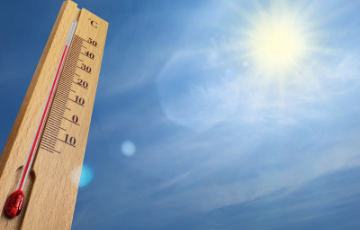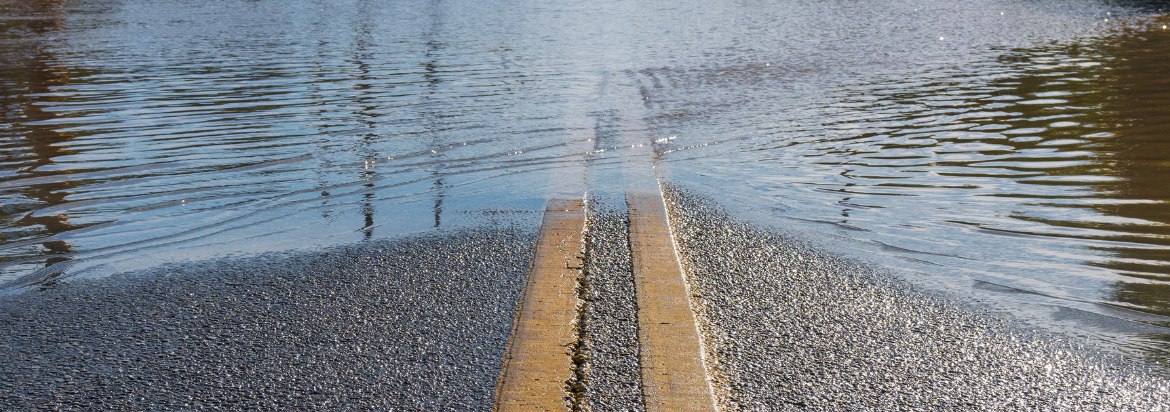Floods can affect your health
Floods create many health and safety risks, as well as road closures, power outages, and other disruptions that may create stress and affect your ability to access services. Visit Flooding and your health to learn how to prepare before a flood and how to protect yourself during and after a flood.
Communities recently affected by drought or wildfire may also face increased risk of falling trees, rockfalls, landslides, and flooding during winter storms. Visit Landslide and flooding risks due to wildfires for more information.
Before a Flood
Make an emergency kit, prepare a family plan, and know safe routes out of your community. Sign up for local alerts and check weather updates.
Resources to prepare for floods and landslides:
During a Flood
In the event of a flood, be aware of the following hazards:
- Drownings, often when trying to cross moving water on foot or in vehicles.
- Electrical hazards when equipment inside or outside the home is submerged.
- Respiratory hazards, such as mould and asbestos released during remediation activities.
- Infections due to exposure of wounds to contaminated water or the consumption of contaminated food crops, food products or water.
Visit What happens during a flood to learn what actions to take during a flood.
After a Flood
Returning Home after a Flood
Be cautious when returning home. Watch for hazards like unstable buildings, electrical risks, or contaminated water. Wear protective gear during clean-up.
Resources on clean up and recovery after a flood:
Flood Impacts on Water Systems
Flood events can contaminate water supplies through submerging wells, exposing pipes, or introducing contaminants to surface water. If you think a drinking water system has been impacted by flood, contact your local Environmental Public Health Office. Learn about the actions you can take depending on the water supply system (Community Water Supplies or Private Water System):
- Community Water Supplies
-
Users should be advised to check for water quality advisories on the Current Drinking Water Notices webpage. Users may need to seek alternate sources of drinking water while the water supplier remediates issues and restores potable drinking water.
- Private Water Systems
-
Owners of private water systems are responsible for ensuring the water is safe for drinking, cooking, and household sanitation. B.C. landlords have a legal requirement to provide tenants with a potable water supply. If a private water system has been impacted by a flood, residents should use alternate sources of drinking water while the system is assessed. Explore these provincial resources that may help determine the safety of your water supply:
Water Well Disinfection Using the Simple Chlorination Method
- Flood Impacts on Waste Water Systems
-
- Community Waste Water system: If your home is connected to a municipal sewer and it has been impacted check with your local government on when the system has been restored.
- Private septic system: may be impacted by flood waters which may result in sewage backed-up into the home, contaminated drinking water, and lack of sanitation. This resource Sewage Systems and Flooding: Safety, Sanitation and Clean-up provides information about how to respond to and recover from emergency flooding of your system.
- To find an Authorized Person:
- Flood impacts on Air Quality
-
Flooding can lead to mould growth that affects breathing and indoor air quality. Dry and clean your home as soon as possible and seek help if the damage is extensive. In particular, be aware of the risks of disturbing asbestos in older homes during remediation. Contact a licensed asbestos abatement contractor if you think asbestos may be present.
Resources on mold and asbestos:
- Flood impacts on Mental Health
-
Flooding can be stressful and affect your emotional well-being. If you feel overwhelmed, reach out to friends, family, or mental health supports. Visit Island Health’s Mental Health & Substance Use Services for more information.
Please contact your local Environmental Public Health office if you have any questions.
Resources
Stay Alert




